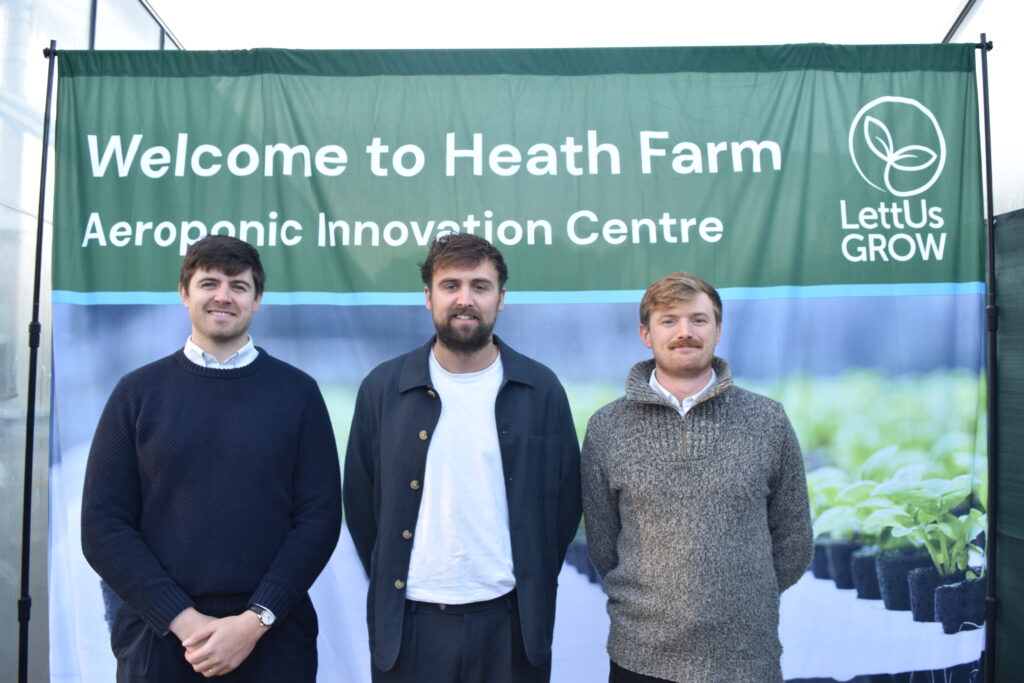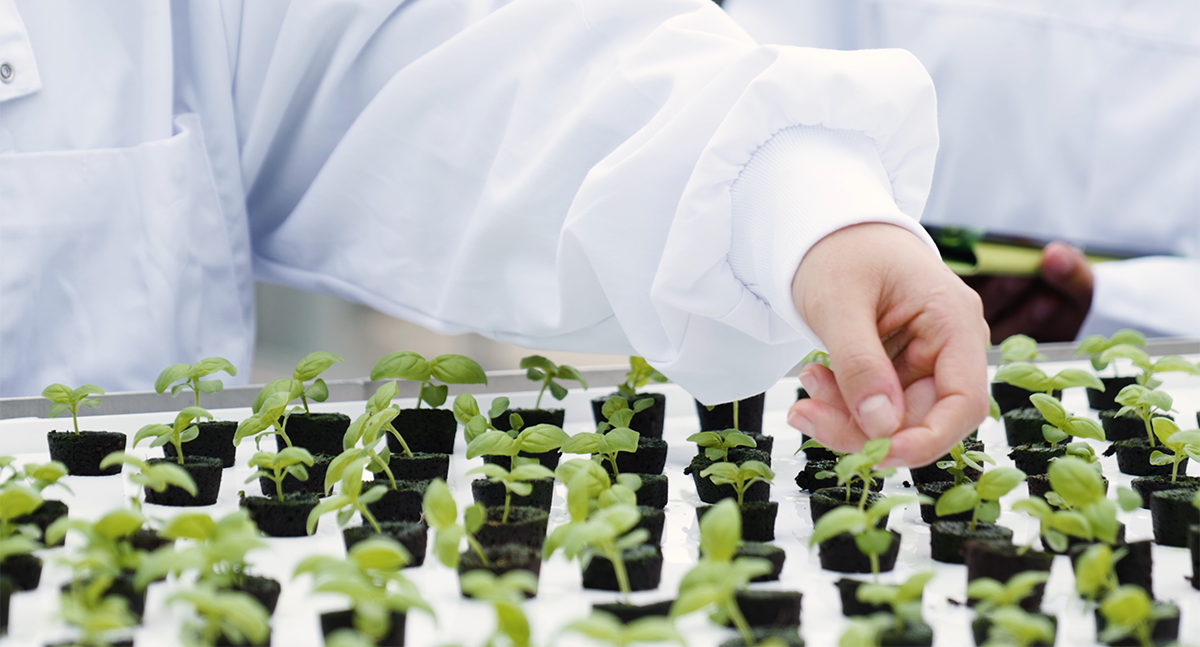LettUs Grow was founded in 2015 by entrepreneurs Jack Farmer, Ben Crowther and Charlie Guy, who all share a commitment to innovation in sustainable farming. Their initial focus was on vertical farming, leading to the development of the DROP & GROW™ container farms using their patented ultrasonic aeroponics. This technology, which suspends plant roots in a nutrient-rich mist generated by ultrasonic sound waves, offers improved yields, reduced water use and minimised fertiliser usage.
Whilst this technology has enabled the diversification and localisation of UK food systems, large-scale automated glasshouse production is a different market proposition. To access this larger market more efficiently, a two-phase project was undertaken with the UK Agri-Tech Centre to adapt this aeroponic technology for commercial greenhouses, aiming to develop and validate an Aeroponic Rolling Bench™
system through rigorous commercial growth trials.
Approximately 30% of the UK’s annual carbon emissions come from food production, and a heavy reliance on imports intensifies this impact—84% of fruit and nearly 50% of vegetables consumed in the UK are imported. The project responds to this challenge, combining the insights gathered from LettUs Grow’s Commercial Advisory Board with the UK Agri-Tech Centre’s sector knowledge, in order to address the real-world challenges of the industry and improve the productivity, profitability and sustainability of the UK’s fruit and vegetable supply chain.

Innovation story
LettUs Grow’s ultrasonic aeroponic technology irrigates plant roots with a nutrient-dense mist, enhancing oxygen supply to the root zone and supporting greater respiration and nutrient uptake efficiencies versus traditional hydroponics. The technology has demonstrated an acceleration of crop growth by up to 22% compared to hydroponic systems. Starting with small-scale applications, LettUs Grow has scaled its technology through their aeroponic rolling benches, targeting international greenhouse and vertical farming markets.
A series of trials were conducted at the UK Agri-Tech Centre’s Vertical Farming Development Centre, at Stockbridge Technology Centre (STC), to compare aeroponic rolling benches against conventional hydroponic ebb and flood benches. Trials on micro-radish plants, grown over 10-day cycles, consistently demonstrated an average 22% increase in biomass from the aeroponic benches. These trials validated the potential of LettUs Grow’s technology to enhance crop productivity on a commercial scale, particularly for leafy greens and herbs and aligned with an >20% increase in basil biomass seen in trials with Wageningen University. Phase one trials demonstrated growth advantages across crops, establishing a strong value proposition. Phase two focused on adapting the Aeroponic Rolling Benches for commercial greenhouse operations, yielding further positive outcomes.
Ben Crowther, Chief Technology Officer & co-founder:
“It is through working with the likes of the UK Agri-Tech Centre and Innovate UK that we’ve been able to access the growers, engineers and biologists that we need to develop and build our first prototypes of this technology. We’ve been able to expand our testing and generate the data to prove our claims and show the impact we can have at scale due to this support.”
Collaboration and support
Bringing LettUs Grow’s aeroponic technology to market required not just innovation, but also industry validation, real-world testing and strategic collaboration. Working with the UK Agri-Tech Centre allowed access to commercial-scale representative testing facilities, where rigorous trials helped to demonstrate performance against standard hydroponic systems, enabled LettUs Grow to make design improvements and generated data to build industry confidence.
Dr Harry Langford, Head of Sustainability at the UK Agri-Tech Centre said:
“The UK Agri-Tech Centre brought our knowledge and experience of CEA and horticulture to the project to support LettUs Grow to validate their prototype against commercial standard hydroponics. Our independent status means we are well placed to support this technology development, validate its performance and disseminate its success.”
This project’s success story shows the potential of agri-tech innovations in transforming agricultural practices. It highlights the importance of research, industry collaboration and an understanding of market needs in turning an innovative idea into a commercially viable product. As the agricultural sector continues to face global challenges, innovation and technology can pave the way for more sustainable and efficient food production methods.
